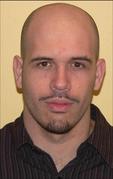Jodra Luque, Jose Luis
Personal information

Address: Alda. de Urquijo s/n. C.P.: 48013. Bilbao
Office: 3A21
Email: joseluis.jodra@ehu.es
Telephone: +34 94 601 3958
Fax: +34 94 601 4259
Academic degrees
University degree
Career: Computer Engineering
Center: University of the Basque Country
Date of achievement: 2001
Doctorate
Program title: Tecnologías de la Información y Comunicaciones en Redes Móviles
DEA date of achievement: 2005
Thesis title: -
Date of achievement: -
Masters
Master title: Master en Administración y Gestión de Empresas (MBA)
Center: Escuela de Administración de Empresas de Cataluña (EAE) adscrita a la Universidad Politécnica de Cataluña (UPC)
Date of achievement: Junio 2002
